Getting Engaged Through Meaningful Experiences (P1)
Some of our cooking ingredients.
“We’ll be making laab blaa (mince fish), yam khai dao (fried egg salad) and som tum (spicy papaya salad, my favorite)”, she explained. She told me once she’s famous for her papaya salad.
My eyes initially beamed with excitement. I love cooking, and I love eating Thai food. Then, I withdrew, “I want to go but I’m really nervous speaking around other foreigners”.
Kruu Ruchira knows how easily nervous and frustrated I can get sometimes, especially when I’m around other foreigners who speak Thai. I have this irrational fear of being judged based off of my language ability. Many foreigners, especially those who are missionary, are required to go to Thai classes for their mission work. They have far more exposure to Thai on the day to day than myself, and their language usually soars within only a few months of living here.
“It’s fine! Relax! Don’t worry about it. If you make a mistake no one will care or correct you. Just talk freely!”
Her words helped me relax a bit. Instead of seeing this as a possible traumatizing experience (I’m very sensitive!) I saw it as an opportunity to take a few steps towards alleviating my speaking anxiety. Plus, I assumed her students are probably kind, supportive individuals; Kruu Ruchira even said that she teaches for the passion of teaching and isn’t interested in starting a school or expanding her business. The students she keeps around her are people she genuinely loves, so I was confident that her students and I would get along just fine.
She let’s me speak without correcting every little nuance or detail.
“Put three peppers in at first, then add more if you want it spicier.”
“Pour just a little bit of fish sauce.”
“Slice them into small pieces.”
“Those? They’re fish eggs! It’s OK you can eat them – they add flavor.”
I was with
my “Thai family”.

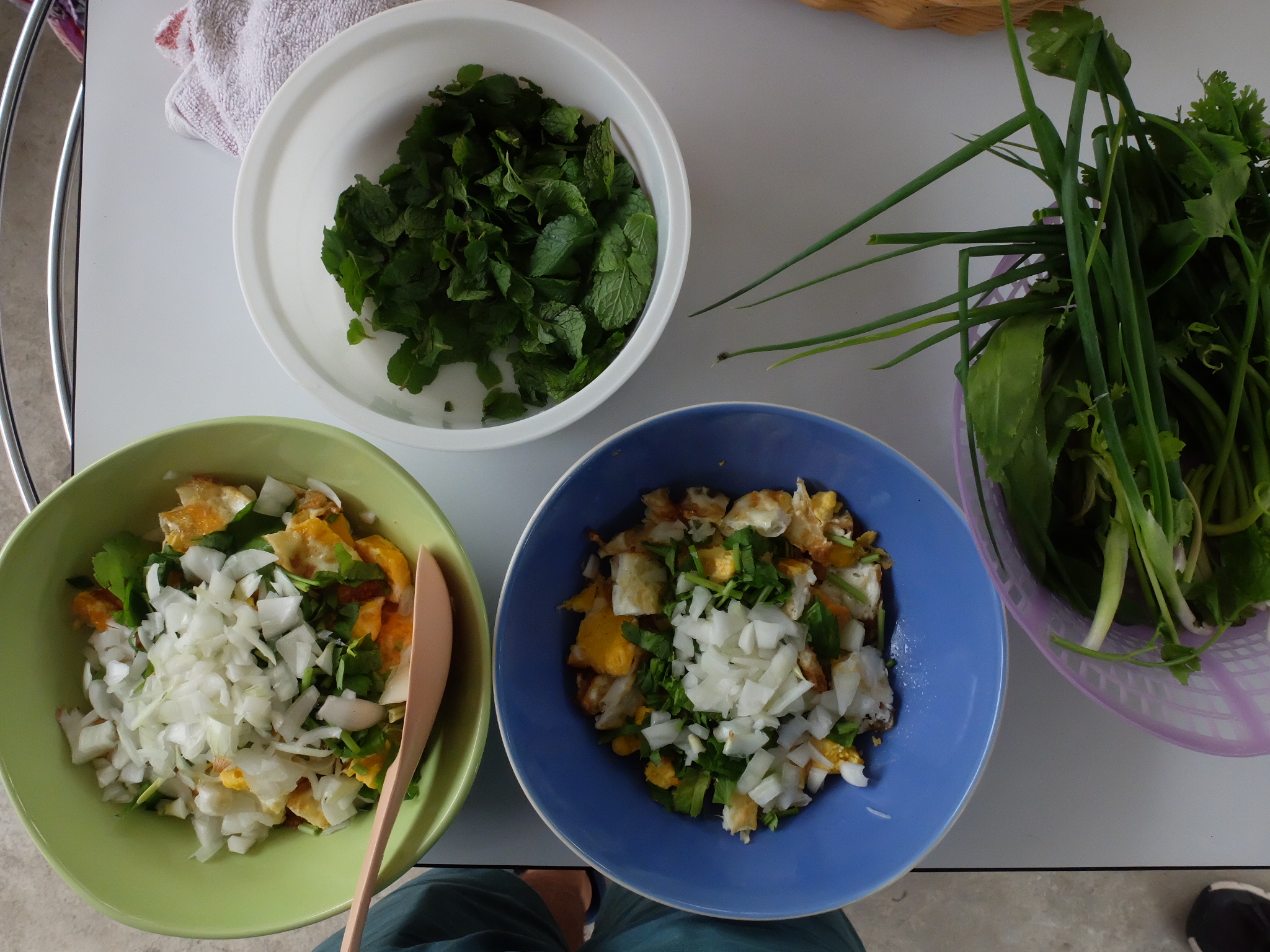

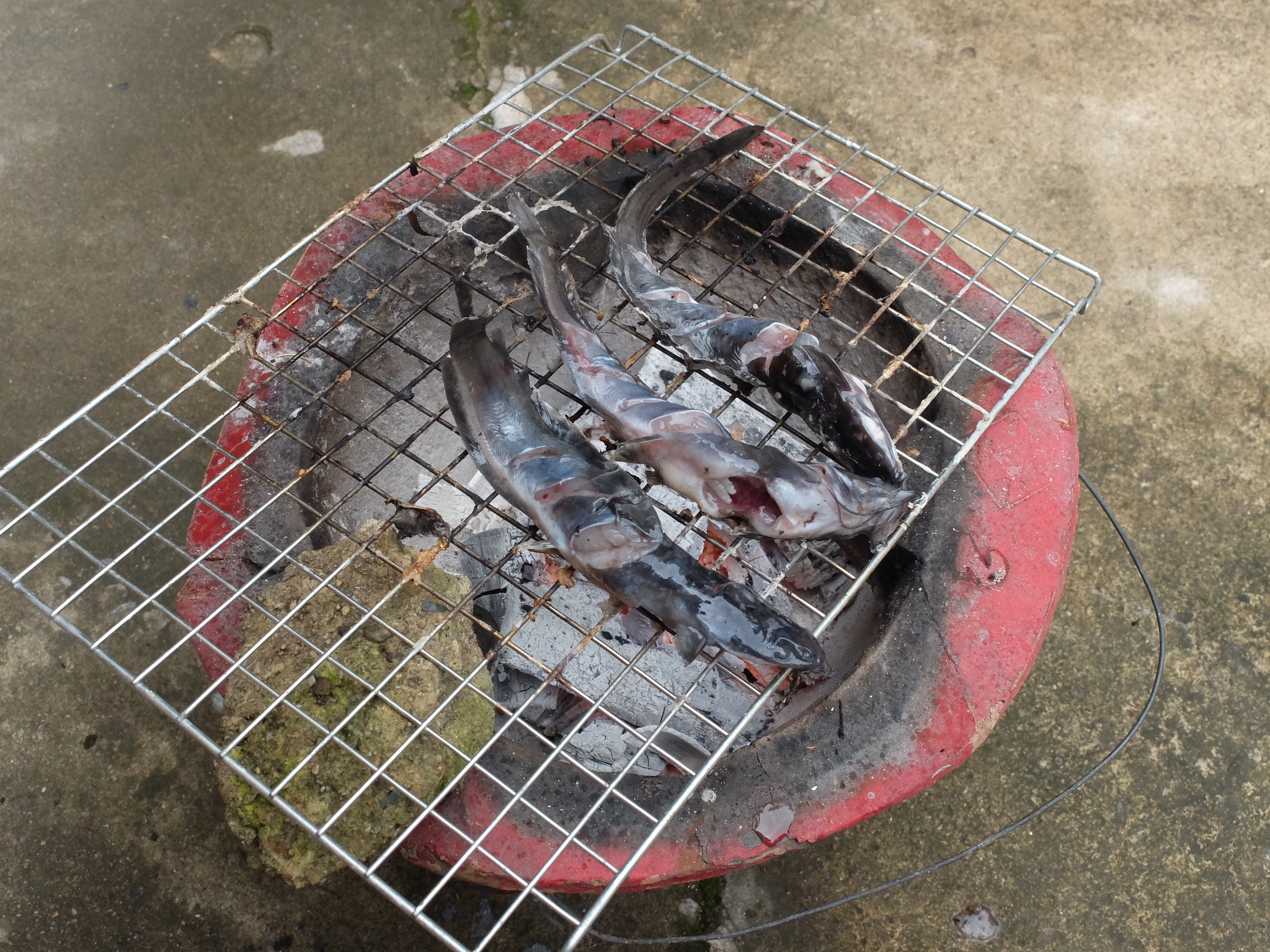
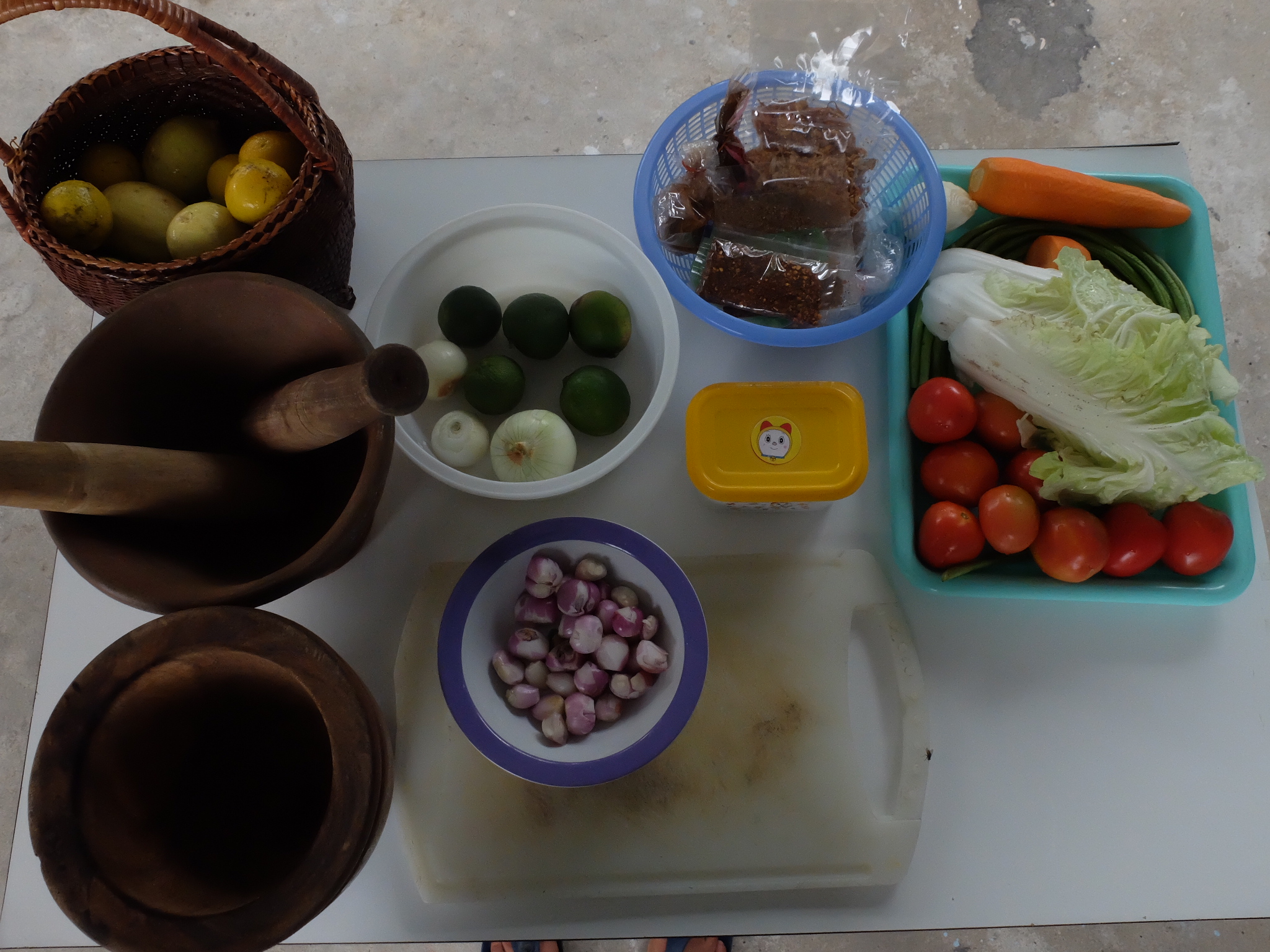
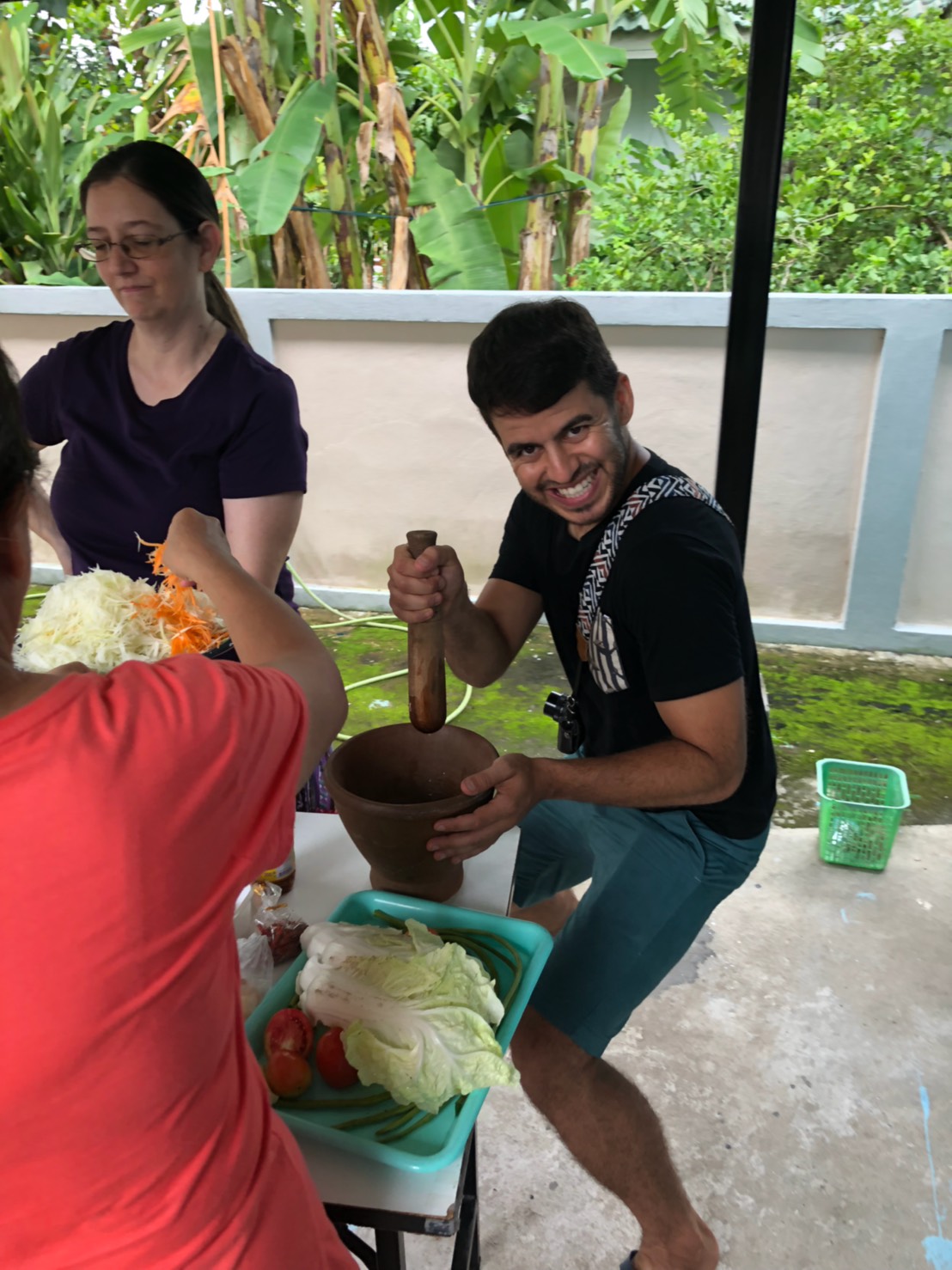
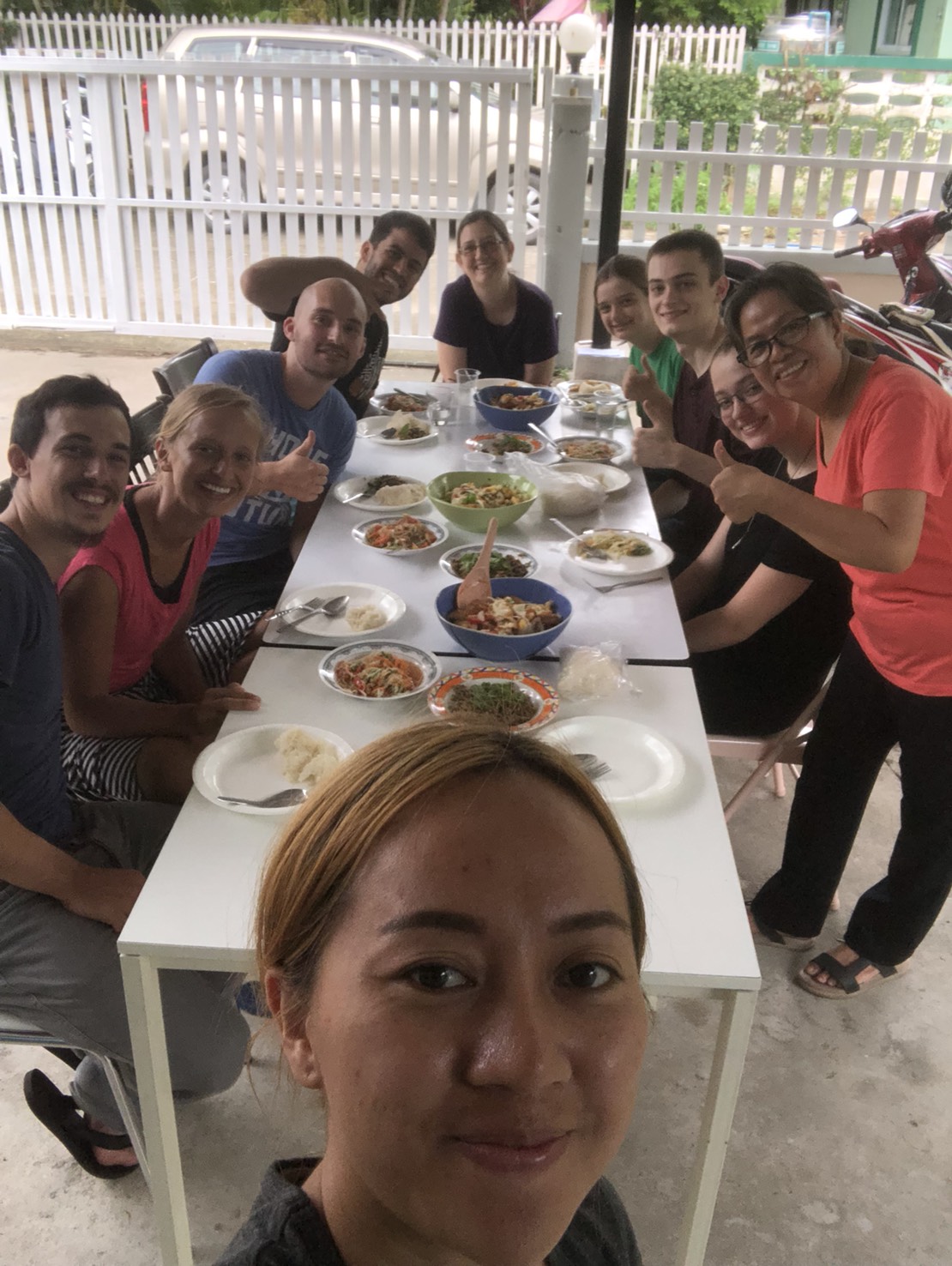
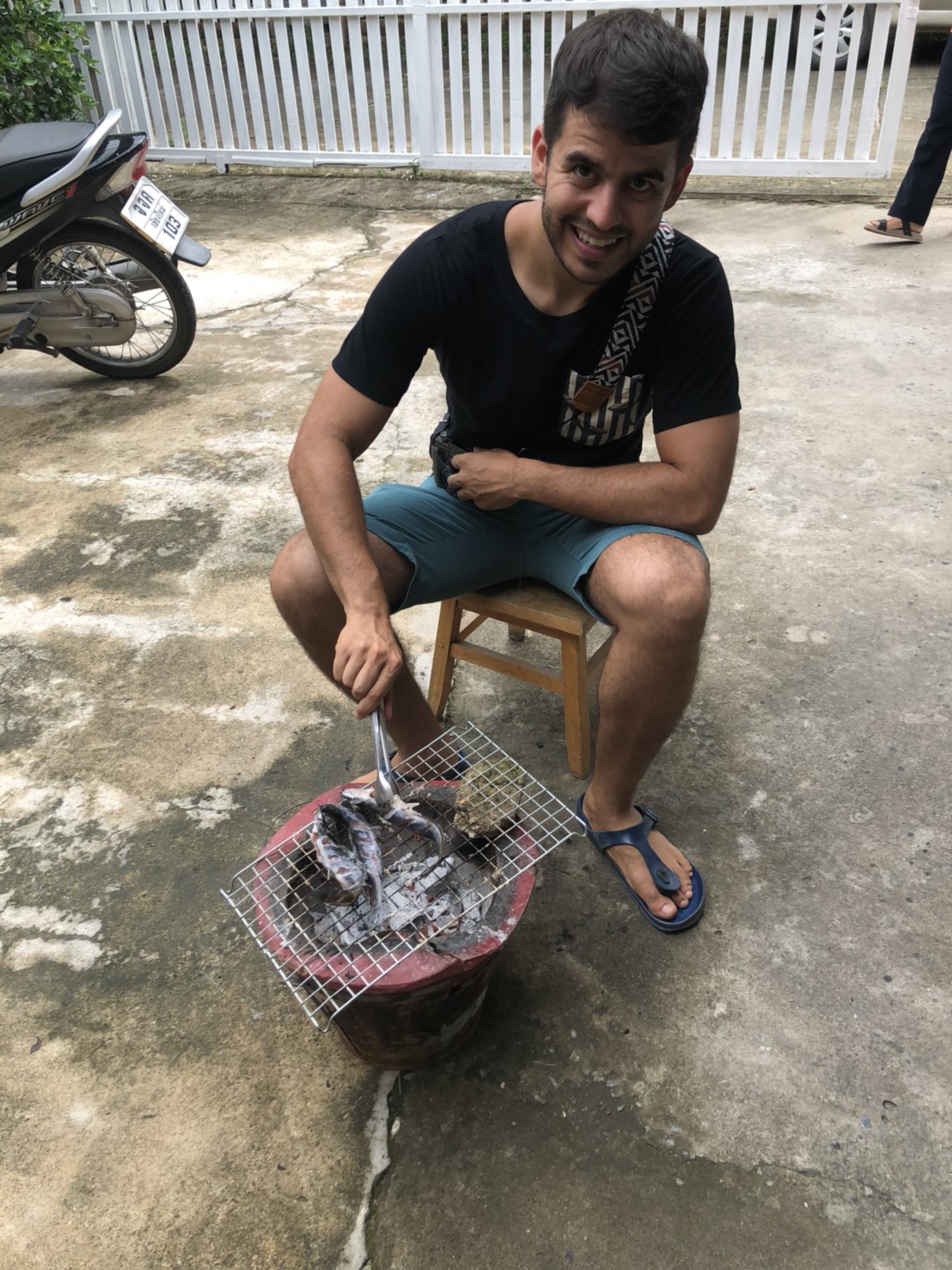
Amazing how food and family connect know matter where you’re from.
Absolutely!
I am loving your posts, Justin! It’s wonderful how you’re able to connect your own language lesrning to the classroom to benefit your students. I can’t wait until the next post!
Thanks! We had so much fun – looking forward to posting again next week already 😀
You rock! Did you teach them how to make PB? If not, you should. Happy belated birthday buddy!! Miss you.